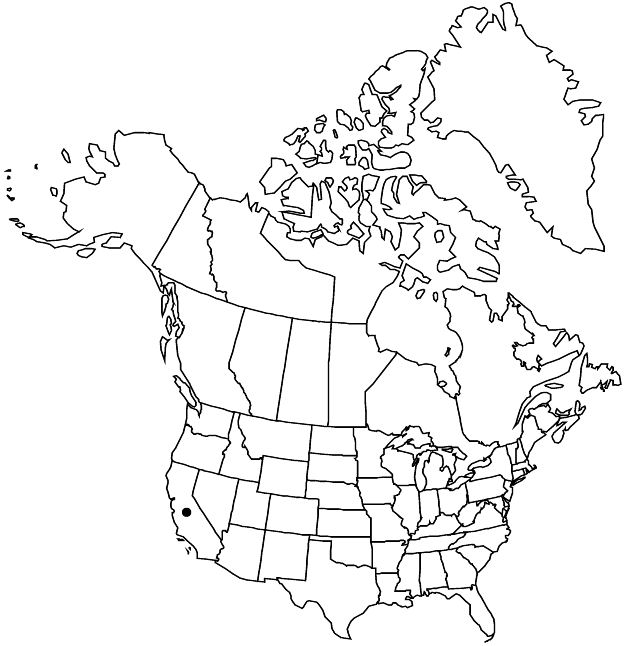Difference between revisions of "Gossypium armourianum"
J. Wash. Acad. Sci. 23: 558. 1933.
FNA>Volume Importer |
FNA>Volume Importer |
(No difference)
| |
Revision as of 22:44, 16 December 2019
Plants 1 m, compact. Stems terete, glabrate. Leaves: stipules subulate, 1–3 mm; petiole terete, 1/2 to as long as blade; blade unlobed, ovate, 1.5–3 cm, coriaceous, base cordate, apex acute or subacuminate, surfaces glabrate. Inflorescences solitary flowers. Pedicels 2–6.5 cm, with 3 prominent nectaries apically; involucellar bractlets deciduous before anthesis, ligulate, 0.5–1 cm, margins entire. Flowers: calyx 5–7 mm, apex subtruncate or 5-toothed; petals yellow with red spot at base, 2.5–4.5 cm; staminal column 12–14 mm, glabrous; style somewhat shorter than petals; stigmas 3–5. Capsules 3- or 4-locular, subglobose or ovoid, 1.5 cm, with sunken glands, externally glabrous, internally ciliate. Seeds 8 mm, strigose, with tightly appressed brownish hairs. 2n = 26.
Phenology: Flowering spring–summer.
Habitat: Open, arid habitats
Elevation: 100–200 m
Distribution

Calif., Mexico (Baja California).
Discussion
Gossypium armourianum is native in restricted areas in Baja California, but naturalized near Palm Springs from an introduction in the 1930s.
Selected References
None.